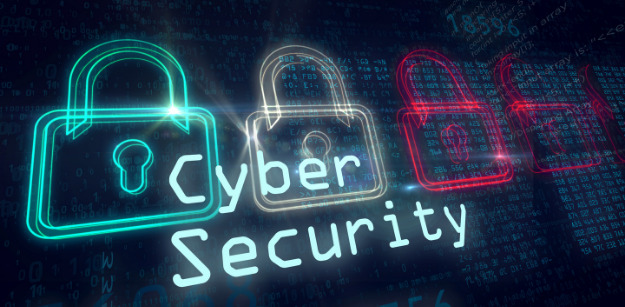In the wake of Covid, cyberattacks increased in India during a period where digital services were rapidly adopted across the country.
According to official data presented Tuesday in the Parliament, there were over 1.16 million cases of cyberattack in 2020, up more than three times from 2019 and more than 20 times from 2016.Every day, 3,137 issues relating to cyber security were reported.
Some measures have been taken by the government to enhance Cybersecurity, the home ministry reported. According to the organization, the Indian Computer Emergency Response Team (CERT-In) also released “regular alerts regarding cyber threats and weaknesses, security countermeasures, and information on protecting networks and computers.”

The online world and technology have become inseparable aspects of our everyday lives. Our present-day cybercrime surface is much wider than it was in the past. In the future, there is likely to be a greater number of disruptive attacks. Straight-away, how to prevent cybercrime? The first step is to know about it a little!
How Do You Define Cybercrime?
An online or primarily online crime is essentially cybercrime. Computer networks and devices are often targeted by cybercriminals. From identity theft to security breaches, cybercrime can take many forms. Cyber-terrorism moves terrorist activity and crime into cyberspace.
Individuals or organizations can wage cyberattacks on the information systems of other individuals or organizations using malicious and deliberate intent. Disrupting a victim’s network usually has some sort of benefit for the attacker.
Cybercrime is on the Rise
The cost of cybercrime is high. Cybercrime is projected to cost $6 trillion in global annual costs by 2021, with an average cost of 3.86 million dollars per breach. Fraudulent email attacks, for example, steal a whopping $17,700 each minute.
Trends are revealed that hackers prefer certain tactics over others. For six out of ten breaches, patched vulnerabilities have not been applied, while hackers are responsible for 45% of breaches, and email is used in 94% of malware distributions.
A triple increase in IoT (Internet of things) attacks occurred during the first half of 2019, as well as a 265% increase in fileless attacks.
A hardware-level security breach has compromised data of organizations of all sizes, with 63% of companies stating that breach occurred within the past year.40% of information technology (IT) leaders say cybersecurity jobs are the most challenging to fill.
Cybersecurity Vulnerabilities
Simply put, computer vulnerabilities are weaknesses or flaws in the system that could provide an attacker with access to the network or the means to cause damage. For your ease of learning, here are a few examples of security vulnerabilities and security threats:
- Malware
- Unpatched Security Vulnerabilities
- Hidden Backdoor Programs
- Superuser or Admin Account Privileges
- Automated running of scripts without malware/virus checks
- Phishing Attacks
- Your IoT Devices
- Your Company Employees
Emerging Cybersecurity Threats
- An image, video, or sound that appears real is created through the use of deep fakes or deep fake voice technology. This threat may lead to wrongful accusations against individuals.
- Similar problems, like the above-mentioned threat, occur when real credentials and synthetic credentials are mixed. A legitimate address may be associated with the identity, but its birthdate and Social Security number are not.
- Using artificial intelligence, artificial intelligence-powered cyberattacks can simulate human behavior. These attacks can trick people into divulging personal or financial information if they are successful.
- Cyberattacks on vehicles can involve stealing personal data, tracking a person’s location, obtaining their driving history, or disabling safety features.
- It is also possible for hackers to misuse cloud computing resources for cryptocurrency mining by hacking systems and programs of businesses using cloud storage.
How to Protect Yourself against Cybercrime
Cybercrime continues to pose a threat. Hacking your financial information is not only the form of cybercrime. But it might not be as straightforward as it seems. Finances aren’t the only concern. Every year, there are new threats in the cybercrime realm.
Cybercrimes can make you want to stop using the internet if you hear and read about them. Perhaps that’s a bit extreme.
You would be better served by knowing how to recognize cybercrime, as it can help protect you and your data. You should also know who to contact if you see someone engaging in criminal activity online and take some basic precautions.
There’s a problem: You can’t completely eradicate cybercrime. The good news is you can take precautionary measures to help prevent it!
A few basic precautions should be taken by anyone using the internet. The following are 10 tips you can use to safeguard yourself against cybercrime.
1. Invest in an internet security suite that offers comprehensive protection
Having a full-featured internet security package helps protect you from malware as well as the latest viruses and ransomware, while simultaneously helping you protect your private information and financial information.
2. Create strong passwords
You should not repeat passwords across multiple sites, and you must change them frequently. Complexify them. Ideally, the combination should have at least 10 letters, numbers, and symbols. You can protect your passwords with a password management application.
3. Stay up-to-date with your software
Your computer’s operating system and internet security software are particularly vulnerable to viruses. Criminals use known exploits to eavesdrop on your system using your software. Cybercriminals are less likely to target you if you patch those exploits and flaws.
4. Configure your social media settings
Don’t divulge any information about yourself. The less you share publicly, the better your chances of being victims of social engineering cybercriminals. You might disclose answers to two security questions if you post the name of your pet or reveal your mother’s maiden name.
5. Be sure your home network is strong
Start by setting up both a virtual private network and a strong encryption password. Your VPN will encrypt all incoming and outgoing traffic. It is unlikely that cybercriminals will be able to intercept anything other than encrypted data if they hack your communication line. If you’re going to use public Wi-Fi everywhere, such as in a library, café, or at the airport, make sure to use a VPN.
6. Discuss Internet safety with your children
Your children can learn acceptable internet use without putting a stop to their communications. Let them know they can turn to you when they are being harassed, stalked, or bullied online.
7. Ensure your identity is protected by taking the necessary steps
Someone attempts to obtain personal information through deception or fraud, typically to obtain economic gain, which is called identity theft. Exactly? A thief might steal your mail to gain access to your account information, or you may be tricked into providing personal information over the internet. The protection of your personal information is therefore crucial. Virtual private networks, or VPNs, are also useful for securing your data when using public Wi-Fi or when using public computers.
8. Stay informed about security breaches
Those that do business with a merchant or have accounts on websites that have been breached should immediately change their passwords once they see what data the hackers accessed.
9. Keep an eye on the kids
You’ll want to keep your kid safe from identity theft and also help him/her navigate the internet. Social Security numbers and credit histories of children are common targets because they represent a blank slate for identity thieves. Keeping track of your child’s personal information can help you protect him from identity theft. Knowing what to look for to indicate that your child’s identity is compromised is also essential.
The Takeaway!
Keeping a data breach from happening is all about preventing it.To prevent hackers, individuals and organizations can invest in cybersecurity software, use VPNs, and be aware of their common attack methods and contact an Information security expert if they feel their system security has been breached, just to be on the safer side.



